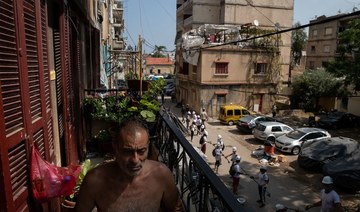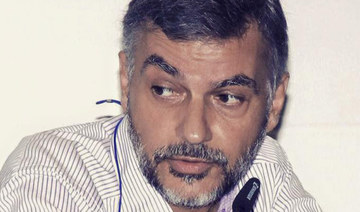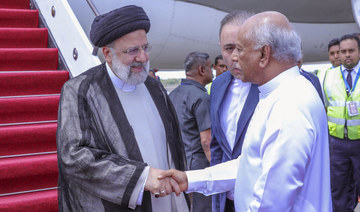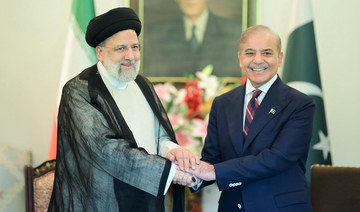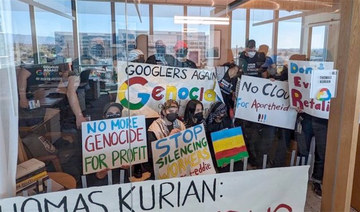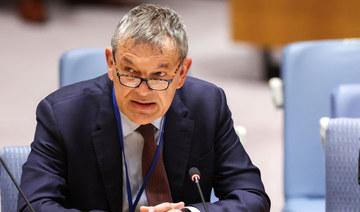BEIRUT: Arriving in Lebanon after last week’s deadly Beirut blast, US envoy David Hale bypassed politicians to head straight to a hard-hit neighborhood where young volunteers are helping people abandoned by their state.
At the volunteer hub dubbed the “Base Camp,” there is a “focus on getting things done,” Hale told a press conference after his tour.
He contrasted the hive of activity to the “dysfunctional governance and empty promises” of Lebanon’s political leaders, who face public outrage over the explosion of a vast stock of ammonium nitrate stored for years at Beirut’s port.
Volunteer efforts “could not only be tapped to rebuild Beirut but (also) to undertake necessary reforms that will bring the kind of transformation that is necessary for Lebanon,” Hale said.
In the wake of the August 4 explosion of a the huge chemical store that laid waste to whole Beirut neighborhoods, students and young professionals have ditched classes and day jobs to save lives, provide emergency support and start to rebuild.
Hale’s visit to the volunteer hub in the blast-hit Gemmayzeh district came days after French President Emmanuel Macron took a tour of the same street last Thursday, as well as meeting Lebanese leaders.
But while Macron was welcomed as a savior, it was clear that the heroes of the moment were the volunteers.
“I don’t know why (Hale) would do that second step and go to meet politicians,” said Wassim Bou Malham, 33, who leads a database management team at the Base Camp.
“The aid is happening here, the data collection is happening here, the cleaning is happening here, the reconstruction is happening here,” he told AFP.
Wearing face masks and neon vests, volunteers sounded like international experts as they explained how they were cleaning up their government’s mess.
In fluent English, they described 3D mapping operations, data collection and relief efforts organized since the cataclysmic blast.
Bou Malham, who spoke with Hale during the tour, is not a data expert but picked up useful experience managing client databases for two of Beirut’s biggest nightclubs.
After the blast tore through the city, wounding 6,500 people and displacing 300,000 from their homes, his skills became vital for the aid effort.
The digitised database developed by Bou Malham and his team of volunteers is now critical for sorting and delivering aid to thousands of blast survivors.
“We haven’t seen any government official or representative actually come in here and ask us if we need anything,” he said.
“It’s so funny that David Hale is the first.”
It is not only in the Base Camp that the state has been thin on the ground.
In the first hours after the explosion, civil defense teams were vastly outnumbered by young volunteers flooding the streets to help.
By the next day, the latter had set up a camp where they offered food, medicine, temporary shelter and repair services to thousands of blast victims, in partnership with several non-governmental groups.
Operations have continued to expand since.
A Base Camp relief hotline received more than 200 calls in the first two hours. Volunteers have assessed the damage to around 1,200 homes and installed at least 600 wooden doors.
“The work is going to speak for itself,” said Bushra, a 37-year-old volunteer.
Simmering anger against Lebanon’s leaders has flared since the blast, which appears to have been caused by years of state corruption and negligence.
With 171 people dead, it is widely seen as the most tragic manifestation yet of the rot at the core of the country’s political system.
Western donors too are fed up with Lebanon’s barons, who have for years resisted reforms demanded by the international community.
In a joint statement released after an international donor conference organized by France in the wake of the disaster, world leaders called for aid to be delivered directly to the Lebanese people.
USAID acting administrator, John Barsa, said at the time that American help “is absolutely not going to the government.”
USAID “will increase its financial support to civil society groups in Lebanon by 30 percent to $6.627 million,” Barsa said in a press briefing on Thursday.
At the volunteer camp in Gemmayzeh, it was clear that funding would be put to good use.
Ziad Al-Zein, arrives before volunteers start their shifts at 9:00 am to ensure the camp is clean and secure.
The 33-year-old was among the first groups of volunteers clearing debris in Gemmayzeh.
“We are not speacialists in crisis management or catastophe management. We are learning things as we go,” he said.
“There is no state,” he added. “We will not abandon our fellow Lebanese in these conditions.”
Streets before suits: US envoy vists Beirut’s ‘real’ rescue hub
https://arab.news/9mj8e
Streets before suits: US envoy vists Beirut’s ‘real’ rescue hub
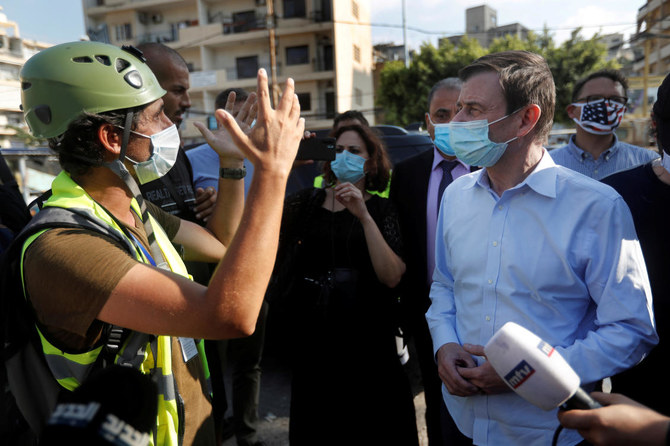
- Hale’s visit to the volunteer hub in the Gemmayzeh district came days after Macron took a tour of the same street last week
- Students and young professionals have ditched classes and day jobs to save lives and provide emergency support
Tunisia recovers the bodies of 19 migrants who attempted to cross the Mediterranean to Europe
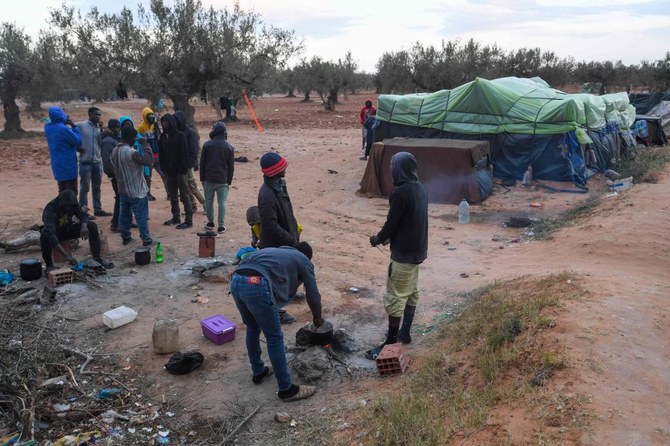
- More than 49,000 people have come to Europe by sea this year
- Human trafficking charges typically carry lengthy sentences of up to 20 years
The Tunisian coast guard said in a statement that it had recovered the bodies near the port cities of Mahdia and Sfax, the country’s second largest city where migrants have in recent weeks clashed with law enforcement.
Despite risks, migrants continue to attempt the treacherous voyage from North Africa to Europe, traveling in boats from Morocco, Algeria, Tunisia and Libya to Italy, Greece, Malta and Spain’s Canary Islands.
More than 49,000 people have come to Europe by sea this year, including more than 7,000 from Tunisia to Italy. Many more have attempted the journey, including thousands who have been intercepted by North African authorities and an estimated 473 believed to be dead or missing, according to the UN’s International Organization for Migration.
Politicians on both sides of the Mediterranean have largely focused their migration policies on combating human trafficking and dismantling smuggling networks.
Tunisian authorities said on Tuesday that they had arrested five smugglers. Human trafficking charges typically carry lengthy sentences of up to 20 years.
Iran, Pakistan urge UN Security Council to take action against Israel
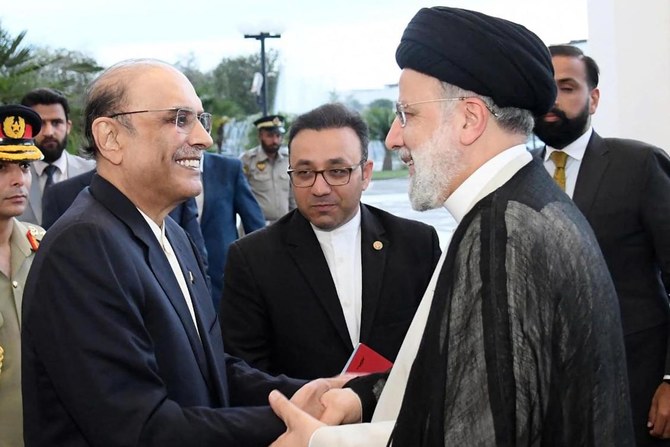
- The joint statement followed a three-day visit to the country by Iranian President Ebrahim Raisi
- Muslim neighbors Iran and Pakistan are seeking to mend ties after unprecedented tit-for-tat military strikes this year
ISLAMABAD: Iran and Pakistan called on the United Nations Security Council in a joint statement issued on Wednesday to take action against Israel, saying it had “illegally” targeted neighboring countries and foreign diplomatic facilities.
The joint statement, released by Pakistan’s foreign ministry, followed a three-day visit to the country by Iranian President Ebrahim Raisi at a time of heightened tensions in the Middle East.
Explosions were heard last Friday over the Iranian city of Isfahan in what sources said was an Israeli attack. However, Tehran played down the incident and said it had no plans for retaliation.
“Recognizing that the irresponsible act of the Israeli regime forces was a major escalation in an already volatile region, both sides called on the UN Security Council to prevent the Israeli regime from its adventurism in the region and its illegal acts attacking its neighbors...,” Iran and Pakistan said in their joint statement.
Muslim neighbors Iran and Pakistan are seeking to mend ties after unprecedented tit-for-tat military strikes this year.
Raisi, who wrapped up his visit and flew on to Sri Lanka on Wednesday, vowed to boost trade between Iran and Pakistan to $10 billion a year.
During his visit to Pakistan, Raisi was quoted by Iran’s official IRNA news agency as saying any further Israeli attack on Iranian territory
could radically change the dynamics and result in there being nothing left of the “Zionist regime.”
On April 13, Tehran launched a barrage of missiles and drones at Israel in what it said was retaliation for Israel’s suspected deadly strike on the Iranian embassy compound in Damascus on April 1, but almost all were shot down.
Pakistan has previously called for de-escalation by “all parties.”
Iran and Pakistan vowed during Raisi’s visit to boost trade and energy cooperation, including on a major gas pipeline deal that has faced delays due to geopolitical issues and international sanctions.
Lebanon’s Hezbollah says fired ‘dozens’ of rockets at Israel
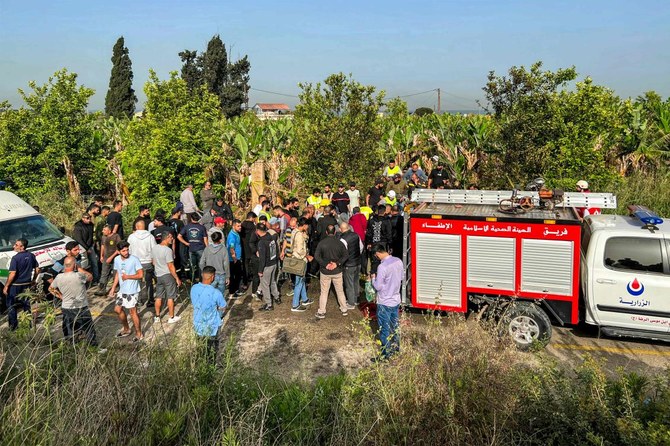
- Hezbollah has exchanged near-daily fire with the Israeli army
- Israel says 11 soldiers and eight civilians have been killed on its side of the border
Beirut: Lebanon’s Iran-backed Hezbollah movement said it fired a fresh barrage of rockets across the border on Wednesday after a strike blamed on Israel killed two civilians.
The group had already fired rockets at northern Israel late on Tuesday “in response” to the civilian deaths.
Hezbollah has exchanged near-daily fire with the Israeli army since its ally Hamas carried out an unprecedented attack on Israel on October 7, triggering war in Gaza.
It has stepped up its rocket fire on Israeli military bases in recent days.
Hezbollah fighters fired “dozens of Katyusha rockets” at a border village in northern Israel “as part of the response to the Israeli enemy’s attacks on... civilian homes,” the group said in a statement.
On Tuesday, rescue teams said an Israeli strike on a house in the southern village of Hanin killed a woman in her fifties and a girl from the same family.
Since October 7, at least 380 people have been killed in Lebanon, mostly Hezbollah fighters but also 72 civilians, according to an AFP tally.
Israel says 11 soldiers and eight civilians have been killed on its side of the border.
Germany to resume cooperation with Palestinian UNRWA agency
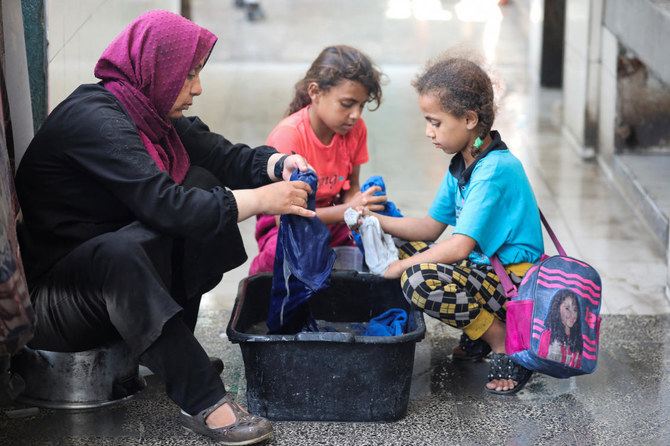
BERLIN: The German government plans to resume cooperation with the UN agency for Palestinians (UNRWA) in Gaza, the foreign and development ministries said in a joint statement on Wednesday.
The decision follows an investigation by the former French foreign minister Catherine Colonna into whether some UNRWA employees were involved in the Oct. 7 attack by Hamas.
The Colonna-led review of the agency’s neutrality on Monday concluded Israel had yet to back up its accusations that hundreds of UNRWA staff were operatives in Gaza terrorist groups.
The German ministries urged UNRWA to swiftly implement the report’s recommendations, including strengthening its internal audit function and improving external oversight of project management.
“In support of these reforms, the German government will soon continue its cooperation with UNRWA in Gaza, as Australia, Canada, Sweden and Japan, among others, have already done,” said the ministries in the statement.





